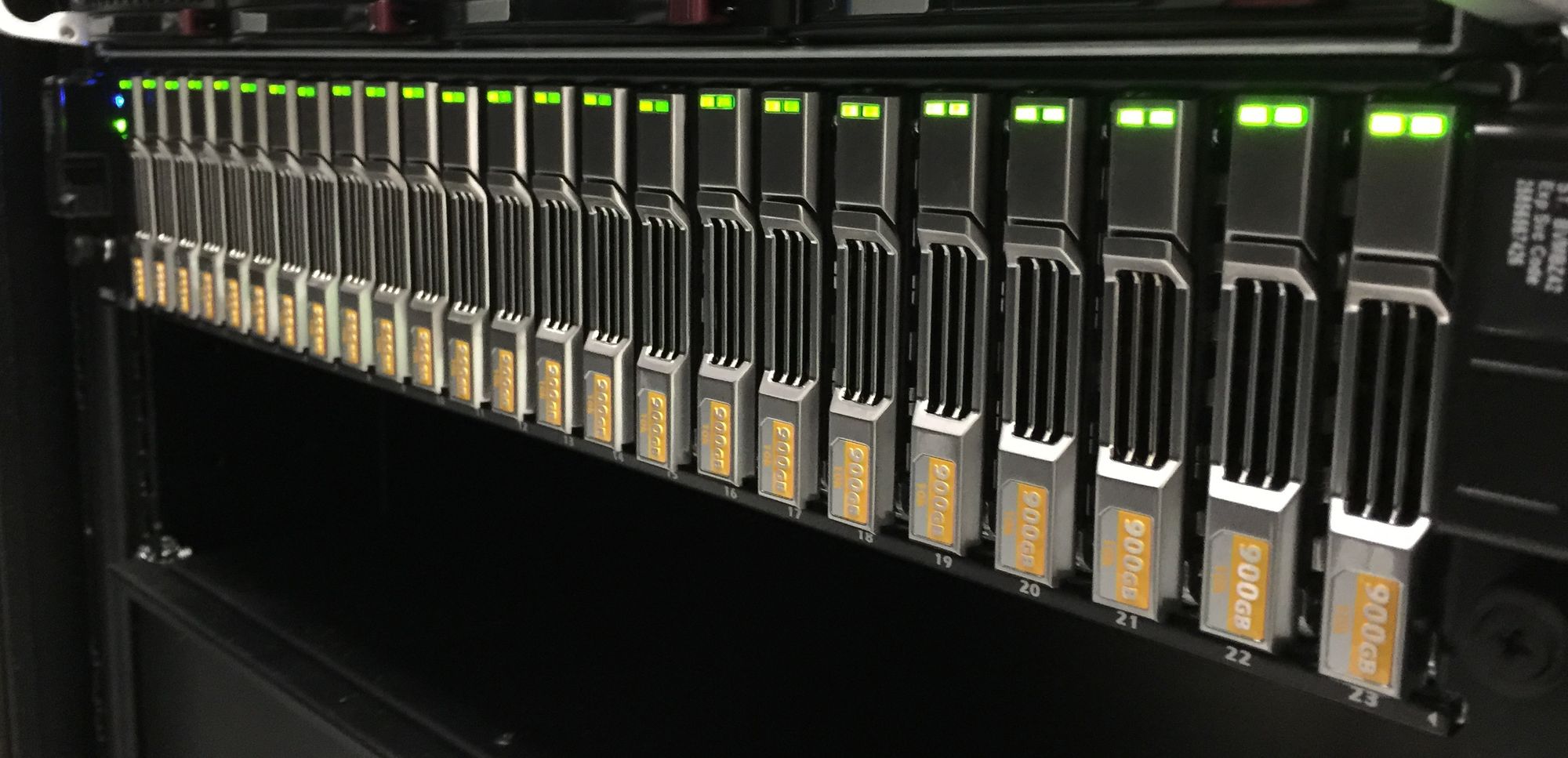Is unlimited ever truly unlimited?
We see the word "unlimited" a lot in the hosting industry, it feels like it's everywhere and most frequently of all it is used to describe how much disk space a hosting account has included.

We see the word "unlimited" a lot in the hosting industry, it feels like it's everywhere and most frequently of all it is used to describe how much disk space a hosting account has included. Every now and then, someone chooses a competitor over us because they claim to offer unlimited disk space and this always stings a little.
We don't offer unlimited disk space on any of our hosting packages. Why? Because suite simply, it's impossible! There's no such thing as an unlimited capacity SSD or hard drive, so there can't possibly be a service offering unlimited disk space, unless you are willing to pay them unlimited money.

Our advice is that if you see the words "unlimited" and "disk" or "storage" next to one another, then look elsewhere, because that company is either outright lying to you, or they are hiding the truth away in the small print.
How much does storage actually cost?
We primarily differentiate our various hosting packages (Copper, Bronze, Silver, Gold, Platinum) on storage capacity (500MB to 30GB) and thus the storage hardware cost makes up a big chunk of the overall cost of the service. So how much does storage actually cost?
To put it into perspective, at the time of writing we typically use 1.92TB SSDs for storage in our servers, these cost around £285 each excluding VAT. Normally these drives are deployed in mirrored pairs for redundancy, so you have a raw storage cost (ignoring space used by operating system files, applications etc.) of £570 excluding VAT for maybe 1600GB of useable space once everything is factored in. The real world cost is going to be a bit higher than this once you also add the cost of power, cooling, spares etc.
A quick Google and the first result for unlimited web hosting is £3.75 per month excluding VAT from the rather imaginatively named "Unlimited Web Hosting". Therefore we could potentially have just a single customer on this server at £3.75 per month and because there are no limits to how much disk space they can use, then they can just fill up the whole disk by themselves if they want, and that's it, we can't host anyone else on that server because the disk is full (plus that one customer on the server will be complaining that they have run out of space on their "unlimited" account!). At that price per month, it's going to take around 12 years for us to cover the cost of just the drives, let alone the rest of the server hardware and all of the operating costs! So you see, it simply doesn't stack up economically.
What about bandwidth?
Of course it isn't just storage that costs money; if your website is using hundreds of gigabytes or even terabytes of storage space, then it stands to reason that people are going to be accessing that stored data as well and therefore we are going to incur connectivity costs to get your website's traffic to your visitors. This is done via either transit or peering.
Peering is normally cheaper than transit, but not all traffic can be sent to peers. Here at Freethought we typically expect to send around 60% of our overall traffic over peering, with the rest going via our redundant transit providers. Exact costs are pretty complicated as with peering we pay for the capacity of the port, but for transit we pay per Mbps on a 95th percentile basis. Then there's also the cost of the network hardware and the inter-datacentre backhaul connections on top of that.
In an ideal world, 1Mbps of constant bandwidth usage is about 320GB of data transferred over the space of a month, however in the real world traffic tends to be higher at certain times than others (typically higher the day time and evenings then lower overnight), so this often works out more like 225GB of data transferred.
If we take a worst case scenario of £0.40 per Mbps, then it would cost £2.84 per month to transfer that entire 1600GB of disk space just once!
So how are they doing it?
There are some common ways that unscrupulous providers get around this:
Some unlimited hosting providers will stuff as many customers as possible onto their servers in order to maximise their revenue and/or set account resource usage limits like CPU and memory aggressively low. This ends up making everything so slow that its impossible to actually use that much space.
Others will place hard limits on metrics such as inodes, which the average user may not be familiar with, but effectively force a limit by restricting the number of files that you can create.
This makes it hard to know how much space you can really use, as a 1KB and 1GB file will both use a single inode, so lots of small files (quite typical with web hosting) can eat through your inode limit very quickly and effectively cap you at a low amount of disk space.
Another common way of getting around this is to hide the real limits away in the terms and conditions as 'fair usage'/'acceptable usage' policies. The big problem with this is that it's very hard to predict, for example, what is "reasonable" usage? 10GB? 100GB? 1TB?
All of this means you might not find that real world limit until its too late; your site gets busy and then all of a sudden you are taken offline with this hidden limit on your supposedly "unlimited" account!
What do Freethought do?
Here at Freethought we believe in doing business in a fair and ethical way (see our ethical policy for details), which means that we charge a fair price for a fair package. We state the limits clearly for all of our services and you are able to use every last byte of space right up to the advertised limit. This means that you always know exactly how much you can use, no worrying about trying to predict what is "reasonable".
We understand that our prices are not always the cheapest, however we firmly believe that our hosting services are fairly priced and thanks to our excellent customer service offer great value for money. So much so that we offer a no-quibble 30 day money back guarantee on hosting!
So why not give us a try?

